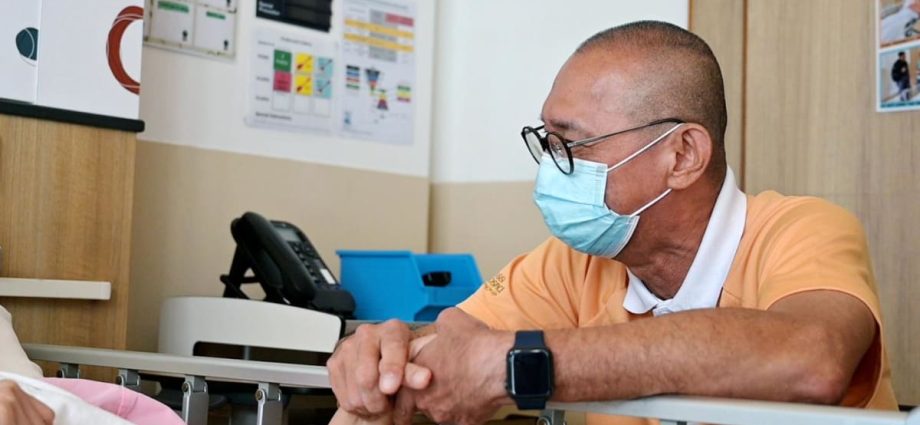
COPING WITH EMOTIONS
While Mr Koh finds joy in providing companionship to terminally ill patients, he also acknowledges the sombre aspect of his role, with “mixed feelings” being present during their final moments.
“I’m saddened to lose a patient, but at the same time, I’m relieved that the patient’s suffering has come to an end … because sometimes the pain really is overwhelming,” he said.
It can be more difficult to cope if the patient is young.
“Young people, thirty-something, just pass on like that … usually they have problems with their family, that’s why NODA comes in,” he said.
“They don’t talk to their mother, father, you know, they have nobody to go to … and their partners are not responding to them”.
By finding solace in the knowledge that his companionship has brought comfort to the patient, Mr Koh said he is able to come to terms with loss and shift his focus towards the meaning of his work.
“I think being present at that moment is very important, it can make a big difference to the life of the patient,” he added.
For Ms Quraisyah, it can get quite challenging when a patient, with whom she has developed a rapport and cared for over a significant period, dies.
The care assistant said she tries not to focus so much on the deaths.
“I just think positive – that they are not suffering anymore and (are) passing on comfortably,” she told CNA.
“It’s a privilege that I actually get to spend the last moments with them,” she added.
“If I ever, like, feel sad, I always have my other nurses to talk (to).”
End-of-life caregivers may also encounter challenging situations during their shifts, especially when patients are struggling with intense emotions during the final stage of life and are not fully conscious.
Mr Hor once encountered an elderly patient who tried to strangle him out of anguish.
“That old lady keep calling ‘papa, papa’, so it’s very obvious at that moment she was looking for fatherly love, and I just act accordingly and try to comfort her,” he recounted.
“However, in the next moment, her emotions just turned the other way.
“She just show(ed) anguish, and then she raised up her hand and gave me a gesture to come closer to her, and next moment she kind of like want(ed) to strangle me,” he said.
“I think it made me ponder what she had gone (through) in her life … that she (has) such (an) intense emotional reaction in her final stage of life.”

